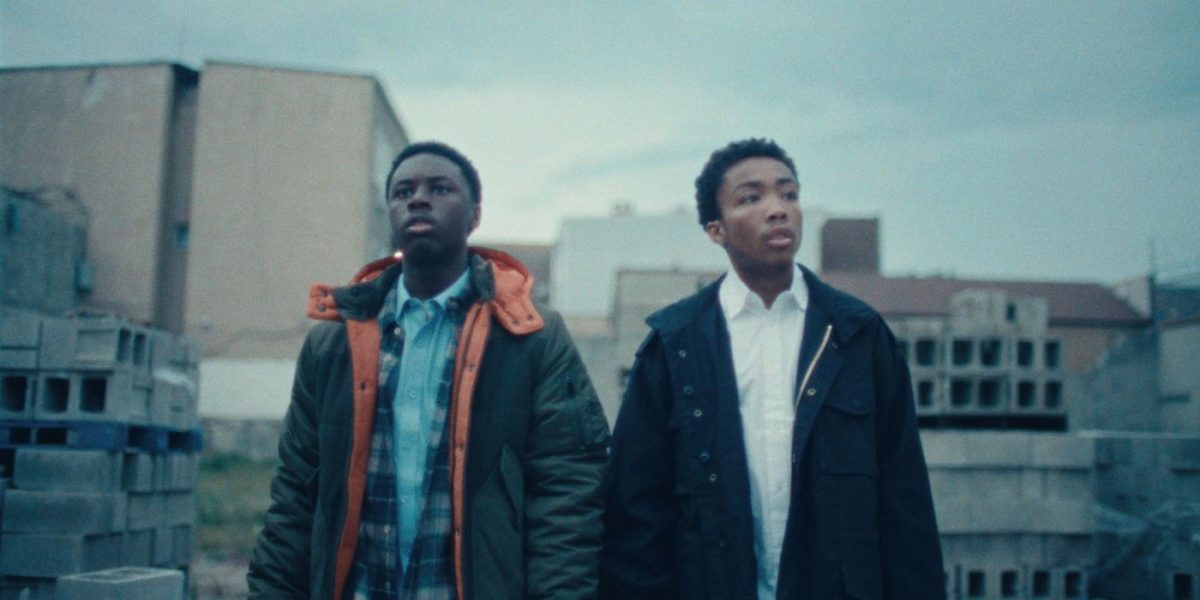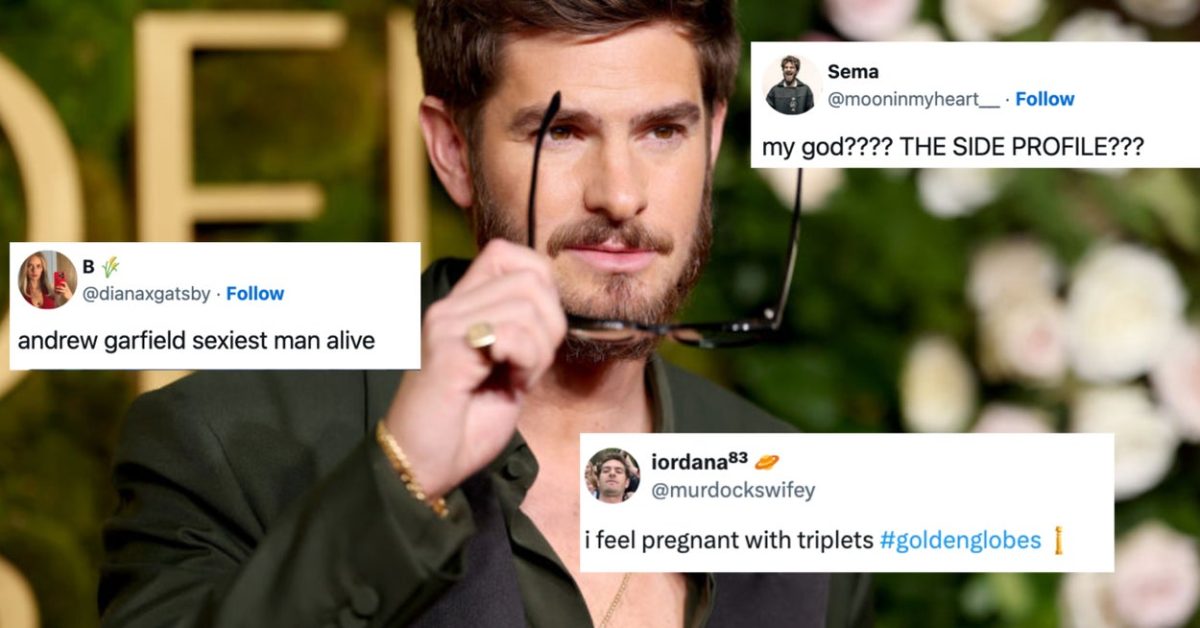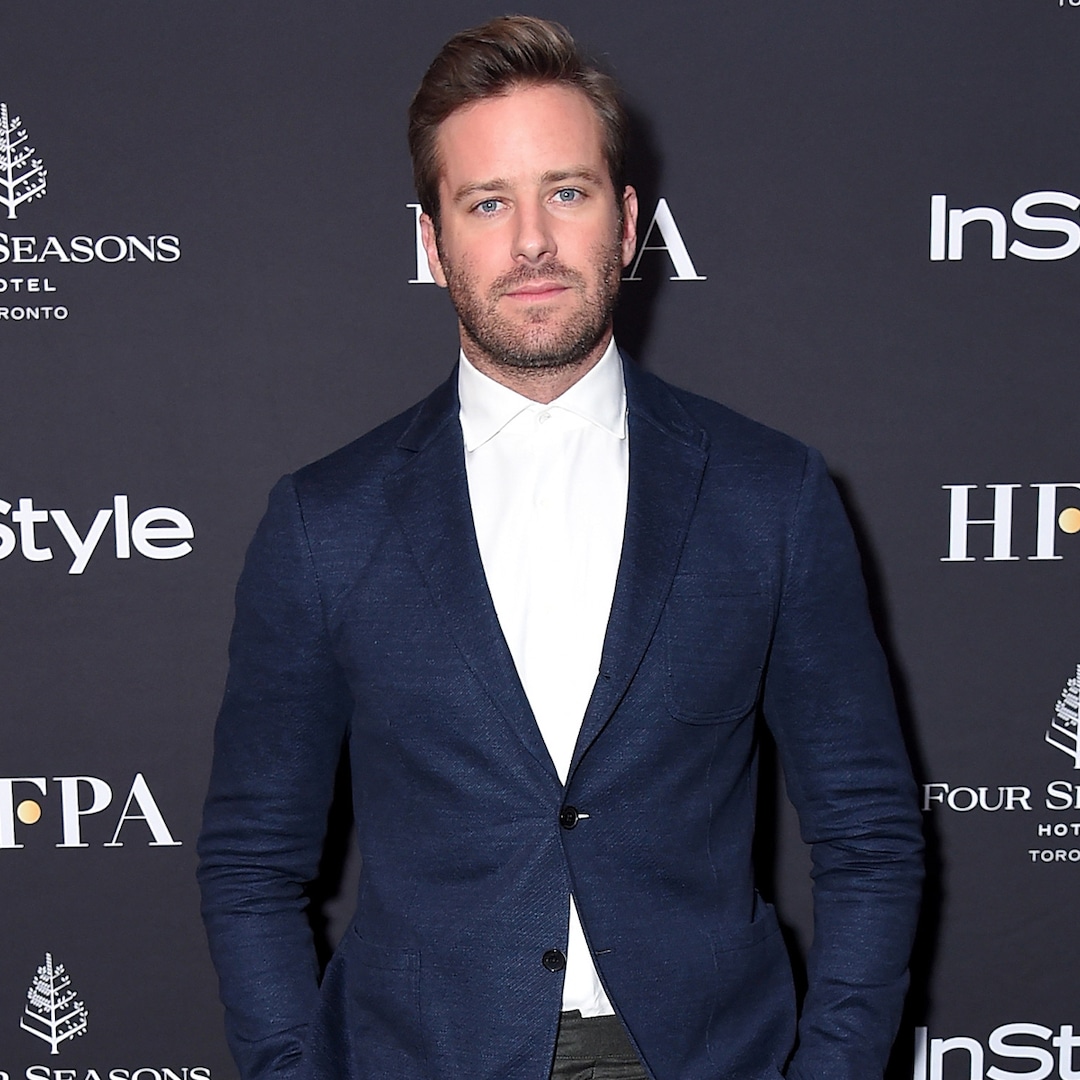
‘Story Ave’ Director Talks Working With Luis Guzmán and Asante Blackk on Feature Debut
Oct 16, 2023
The Big Picture
Writer-director Aristotle Torres explains how his short film turned into his debut feature through luck and the support of the Sundance Institute. Torres emphasizes his focus on visual communication and storytelling through color, camera angles, and textures, drawing inspiration from masters of cinema. The Bronx, where the film takes place, is depicted with respect and a desire to avoid negative stereotypes, highlighting the rich cultural history and influential figures from the area.
Writer-director Aristotle Torres has a lot of thoughts about both his debut feature and art in general. Starring Asante Blackk and Luis Guzmán, it is a work that sees the two playing strangers who are brought together in an unexpected connection that offers a path to healing for them both. To hear it from Torres, the experience of working with the two actors in bringing his vision to life was a wonderful one to start out his feature filmmaking career as he expanded upon his prior short film.
COLLIDER: I think people kind of have a misunderstanding of, “A short is always just intending to be a feature,” even though a short can be this very beautiful thing in its own right, but when was it that you first decided to have this short be your first feature as well?
ARISTOTLE TORRES: Well, that all came about [with] a combination of luck and preparations. I made this short film in 2018, and I really just wanted to make it a play. It’s a life mission of mine to make Broadway more accessible to inner city youth, and not only getting them there but making sure they feel comfortable when they are there. So that’s really where my heart and passion was, and through the grace of a higher power, and like I said, luck, Sundance saw my short and believed in me and believed in this story, probably more so than even I did, and really encouraged and shepherded me to develop it into a feature.
I wanted to ask about that Sundance Institute part of it because I think people normally hear, like, “Oh, people just show a film at Sundance,” but there’s an entire structure for bringing in an exciting new voice, and having it be something more people can see. What was your experience going through the Sundance labs?
It’s funny, I think you nailed it. So many people think it’s the [festival], but the irony is the institute is what started Sundance, and the festival was created in order to highlight the students that have gone through the institute. Then now, through living in the masters of capitalism, they’ve found a way to turn it into so much more than that. But yeah, when you think about indie film representing the Bronx, they’re like the Yankees, they have the best farm system, they have the most championships. I mean, Quentin Tarantino was their first student, who was there 10 years ago. It’s just a special place. I think, for me, all artists need validation, and the Story Ave short was my first short, so to get that validation that I was on the right path of learning was huge from that time in my life.
This film, as your opening film, it feels, and I mean this sincerely as a compliment, it feels like it could be a fifth film in terms of the confidence about art and also the way it looks. I wanted to make sure not to forget about that. What was your approach to capturing this kind of visual? It almost felt like poetry as a way of bringing us into this world. How did you approach the visual style of the film?
I really appreciate you acknowledging that. I think coming from music videos and commercials, my instincts and my sensibilities lean towards visual communication and how to tell stories with the frame and how to communicate to the audience about what’s going on beyond just the dialogue that’s at the surface. I think the way you do that is through color. It’s through lens tracing. It’s where you put the camera. It’s the texture of the wallpaper. All those things kind of work in a ballet to create one image that hopefully is conveying an emotion. I worked really closely with my DP, Eric Branco. I just felt like whenever you make a movie that has predominantly Black, Latino faces and you utilize tools such as slang and streetwear and graffiti and hip hop, it’s very easy to put this movie in the box of like, “Oh, it’s a Black movie,” or, “It’s an urban movie.” I like those movies, but the movies that I gravitate to and I really study are like [Akira] Kurosawa films and [Federico] Fellini and [Yasujirō] Ozu and [Stanley] Kubrick, just the guys and women who really kind of created and invented the style of how we take in cinema today. Obviously, it’s been expounded upon, but that was the roots that started it.
So, I’m just a big advocate of not spraying and praying, which is like, “Let’s get a wide. Let’s get an over-the-shoulder, over-the-shoulder. Let’s get a close-up, and we’ll figure it out in the edit.” When you’re seeing that angle on a close-up, I only got that line on that close-up. So anyway, it’s a very long-winded way, I think it’s a part of my sensibilities as an artist of coming up in music videos and commercials. I think it’s studying the masters who are very intentional with their grammar, and I think it was also just, you know, sometimes limitations can foster creativity. So this is a really small movie. It’s an indie. We don’t have a lot of time. I average seven to nine pages a day. There’s not a ton of time to experiment and explore on the day, so the way you kind of circumvent spraying and praying is you’re very meticulous at shot listing and you’re prepping. I like to storyboard, and I like to short-list. So this is a very long-winded way of saying it’s a lot of things that work in unison, but I’m glad that you acknowledge that that effort was put in.
Image via Kino Lorber
When you talk about these references that you have, I did want to then ask about specific references in terms of the city. I don’t know if you at all watched or thought about other films that have tried to make the city into the character as you do. What are the things that were processing in your mind? I want to get into the details of the story and the acting and everything, but what do you feel is important to capture about the Bronx as a place, not just as an imagined world in films, but as a real place people live and grow and explore and experiment together?
I don’t think I was too hyper-conscious about that. The thing that I really cared about and wanted to protect was just not depicting any negative stereotypes to what it means to live or be from the Bronx. I think a lot of people forget Ralph Lauren is from the Bronx and [Robert] De Niro and Neil deGrasse Tyson and Kerry Washington. So many influential artists of our time have come from there, and it’s a special place. I just wanted to make sure that myself and my crew are respectful of the neighborhoods we shot in. We tried to get as many local caterings, as many local backgrounds, and just really working with the community and not working against it. I just feel like whenever you go into something with those kinds of pure intentions and attention to detail, it all kind of works itself out, you know?
When it’s then this central relationship between two people and these two fantastic actors, what were the conversations that you all were having together? There were parts of it where I was thinking of My Dinner with Andre in terms of just long conversations between people. How much flexibility did you allow for them to take things in directions, or what were the conversations you were having?
Like I said, our limitations didn’t really foster an environment where we could just kind of experiment and discover on the day. So, a lot of the conversations were less about rehearsing the scenes in terms of, like, how we would say the lines, but more so the intention of why they were saying the line, what is the thing they’re really saying, what is the thing they’re hiding, what is the thing they’re saying in between the lines? It was really just exploring and understanding that.
I was so fortunate as a first-time filmmaker to work with two masters of their craft, quite honestly, between Luis Guzmán and Asante [Blackk]. I mean, I had an amazing cast, but to have those two actors be the heart and soul of the film put me in a position to win, or at least a position to make a watchable film because they’re so meticulous about their craft and the details. I like to live, or at least subscribe, by a theory of, like, a take for love. So it’s like we’re gonna get the scene the way it was written because I’m the writer. I’m trusting myself in that moment, but I also want to foster an environment where actors can be impulsive and work within the moment. And look, if they’re taking my intention and building upon it and doing it in a different way, it only reinforces my intention because they’re more natural in the moment, reacting at that point. They’re being organic and reacting as naturally as possible, and that’s all you could really ask for in a movie like this.
I don’t wanna sell you short either because both of them are obviously at very different points in their career, but to my reading, this is some of the best work they’ve ever done, and I don’t think it’s because they’ve never been good before, but because you have written these characters for them and given them this room to really explore. I was especially thinking of when we shift into the apartment scenes. It’s a wonderful thing where you can be watching a movie, and then you forget you’re watching a movie. What was the shift in their relationships where there’s this natural kind of camaraderie that they have, but still a little bit of tension that kind of builds in the end?
I was very conscious in seeing the world through his eyes, so everything we’re experiencing as a viewer is how Kadir is experiencing it and not even necessarily reality. So, you know, at the beginning of the film, there are much more vibrant colors, there’s a lot more saturation, there’s a lot more shallow depth of feel, more close-ups. Then, as the movie progresses and Kadir’s story progresses, specifically through his relationship with Luis, colors get more desaturated, apertures expand, lenses get a little bit wider. We just feel a sense of relief and exhale, similar to what Kadir is feeling in the story. I think it goes back to if you really love movies and you love those kinds of details, you cultivate happy accidents where even things that feel intentional might not have been consciously thought of, but we’re subconsciously in the thought process because we were all making the same movie at the same time.
Image via Kino Lorber
I appreciate the very specific details, and the use of the word exhale is, I think, a good one because as I was watching it, I was like, there’s a version of this movie, and I think you had kind of alluded to it further, where characters fall into stereotypes or that there’s sort of this, like, reduction. When this movie comes out into the world, there’s obviously going to be conversations about that approach in terms of, like, you can tell a story about tragedy and pain, but not have it become that you stripped characters of their humanity. What is your thought in terms of how you found that balance?
To me, that’s just my world. That’s just truth to my experience as a human being, not even as a Black Latino man living in New York. I think humans are flawed, and people are flawed. I think we’re all a little bit, and I think that’s what makes us unique on this planet. It’s just not in my gut or in my soul to depict something that doesn’t feel like an authentic, actual experience. For one, I’m never putting my ego in front of the film. It’s always about what’s real, what’s authentic that plays out in that moment. And I think if you just keep going back to that, you cultivate more of those areas of nuance that add and create a greater thing even beyond what you were expecting.
I looked up an interview you did in 2016 where it was sort of this question of what do you want to do next? My favorite thing that you said was you just want to be able to have your space to create, to paint, to write, to pitch, to do all these things. How has your perspective changed? Have you found that place, and is there anything that you’re working on? Not even just a film, but it could be of what you want to do next.
At the end of the day, I’m an artist, you know? So I experiment in a lot of different mediums, and I just want to continue to challenge myself, to challenge my viewers who perceive or take in my art. I think good art is vulnerable art, so I just want to look inward, continue to be vulnerable through the things that I create and put in the world, have them be authentic and have them be true to me and my experience, and, I think, you know, remain a good person, and if you do those things and you’re a pleasure to work with things kind of just work out naturally. I am writing my next movie, but I don’t know if that is my next movie. But, you know, man, I’m really just trying to live in this moment, making really difficult movies and miracles. It was the hardest thing I’ve ever done. So just doing my best to stay present in this, the movie comes out tomorrow. So, you know, staying grounded, staying humble, and just kind of living in this one, at least for the time.
Story Ave is now showing in select theaters in New York and Los Angeles.
Publisher: Source link
Aubrey Plaza Issues Statement After Jeff Baena’s Death
The 40-year-old star and Jeff’s family issued a statement to People on Monday, where they called their loss an “unimaginable tragedy.”The Los Angeles County coroner’s office previously determined that Jeff died by suicide in his LA home. He was 47…
Jan 10, 2025
Jill Duggar’s Husband Clarifies Where He Stands With Jim Bob Duggar
Jessa Duggar (m. Ben Seewald)Jim Bob and Michelle's fifth child, Jessa Duggar, was born Nov. 4, 1992. Jessa met Ben through church and he began courting her in 2013—the old-fashioned approach to romance coming as a brand-new notion to a lot…
Jan 10, 2025
The Internet Has Officially Lost It Over Andrew Garfield's Slutty Glasses
That man knew exactly what he was doing with those glasses.View Entire Post › Disclaimer: This story is auto-aggregated by a computer program and has not been created or edited by filmibee.Publisher: Source link
Jan 9, 2025
Armie Hammer Lands First Movie Role Since Cannibalism Allegations
Armie Hammer Cameos As “Kannibal Ken” in Music Video 4 Years After Cannibalism ClaimsArmie Hammer is heading back to the big screen. More than one year after the Los Angeles Police Department ended their lengthy investigation into the Call Me…
Jan 9, 2025











